Why Does Trailblazer's Combat Feel So Good?
I've been getting a lot of positive feedback on my combat system for Trailblazer and getting asked by other devs about how to improve their own battle systems. So, I'm going to do my best to explain my combat philosophy for how to engage players in combat, and hopefully you can take this away to improve your own game as well.
For background, growing up, I played a ton of RPGs, but I also played a lot of fighting games. As I've gotten older, and my reflexes have dulled, I don't really compete in fighting games anymore, I am still actively follow the community, which is how came across the thoughts of a Korean Street Fighter player by the name of Laugh, and his theory on how quickly adapt your playstyle based on the type of player you were fighting against. In this way, Laugh lumps players into one of three categories:
1) The Body
2) The Mind
3) The Heart
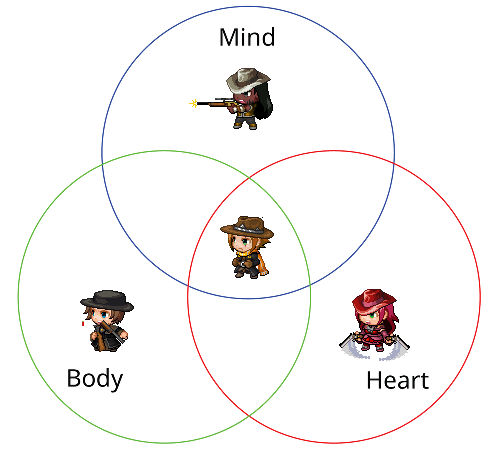
While players will combine aspects of all three, most players will fall more heavily into one style than the others. My philosophy is that this theory extends beyond just competitive games and that RPG Players will approach combat in these three major ways as well; so if you make your combat able to be approached by each of these different player types, you'll find a system that engages a huge pool of potential players. Here's my theory on each of these player types, and what they're looking for in their combat experience.
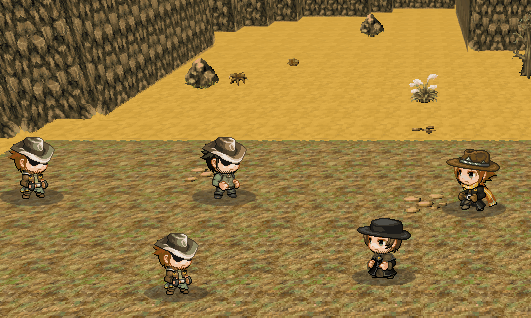
The Body is the player who just wants to win. When this player opens a chest and sees a Claymore, they see this HUGE Attack Stat on it and thinks to themselves "I'm going to use this weapon." They may see that it takes 2 hands and can't use a shield, that it's slow and lowers their Agility - blah blah blah. They don't care. They want to beat face, and that's what they're going to do. They will pick weapons with the highest ATK stat, armor with the highest DEF stat, and pick skills that focus on dealing more direct damage. Status Effects, DoTs, and magic in general usually get overlooked, since that involves navigating menus, considering elemental weaknesses, and slows down them down compared to just attacking the enemy. Body players usually have no problem with grinding, and would rather grind up their levels to overcome a difficult boss than try to learn a complex strategy to beat it.
I built the Enforcer Skill Tree with this play style in mind. Shotguns are the biggest, meanest, and loudest weapon. They hit a couple enemies at a time, and the skills at your disposal are simple and straightforward. Boosts to your physical stats, some ancillary abilities to allow you to survive longer, and the Feats available are really stronger versions of previous ones. I aimed to allow the Body player to quickly find a First Order Optimal (FOO) Strategy that they can stick with for as long as possible - hopefully through the whole game.
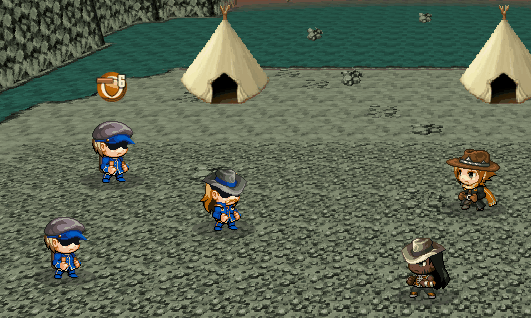
If you've ever been called a Power Gamer, or a Min-Maxer, or a "Roll Player", chances are you're The Mind. The Mind is all about tearing into a game's mechanics, learning every possible thing they can, crunching numbers, and developing the most optimally powerful character(s) possible. They don't tend to focus on individual skills or pieces of equipment, instead looking at their builds holistically, trying to maximize a single, or small set of advantages.
The Mind doesn't just want to win, they want to win on their own terms. Each character has their own role and their own purpose. They tend to mitigate character weaknesses by having other characters take those roles instead, or play into strengths in interesting ways. This is the player that will make the Thief their healer because he always acts first and can throw a potion at the start of round. Mind Players will find all the broken combinations and exploits in your game. When confronted with a new boss, they will pay attention to learn what the boss is doing and adjust their strategy accordingly.
I built the Marksman tree as a sort of playground for the Mind Player. Nearly all the skills in the tree have a synergy with one another, with the final goal of dealing as much damage as possible. Future skills are used to build upon previous skills, and there always seems to be a new synergy that can be built onto the existing strategy. Since Skill Points are limited and the tree is quite dense, the Mind Player will have to weigh benefits vs opportunity cost. In combat, because AP pools are limited and the skills in the tree have a high AP cost, the Mind Player will find themselves in a constant state of measuring risk vs reward.
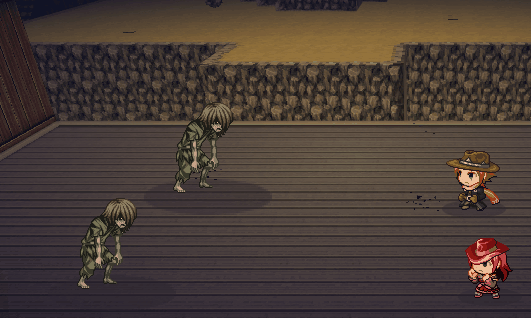
The last, and most common type of player, is The Heart. The Heart just wants to have fun. They may learn some mechanics, they may pay attention to your skill and item descriptions; or they may not. At the end of the day, flavor and "cool" factor are what drive their in-game decisions. The Heart doesn't just want to play your game, they want to experience it.
As a result, Heart players will tend to approach combat less-than-optimally. They aren't going to have the drive to grind like a Body player or the in-depth knowledge of the mechanics like a Mind player. Instead, they'd likely chosen equipment that makes the most in-character sense for their characters, and picked skills that look or sound cool. To them, combat is an extension of story, and the better resonance they can create between battle and the field, the happier they'll be. The Heart Player doesn't so much want to win the way that other player types do, it's just that winning is what needs to be done to progress the story.
The Gunslinger tree was made for Heart players. One pistol in each hand, fun skill names, fluid and complex action sequences - the skill tree is a natural fit for players who like to show off. But it's not just about looking and sounding fun. Because Heart players aren't going to dive as deep into the mechanics as the Mind, and will have less tolerance for grinding than the Body, the skills in this tree needed to be versatile and effective. Gunslingers get early and easy access to AoEs for dealing with enemy groups, powerful single-target attacks for dealing with bosses, and a plethora of status effects.
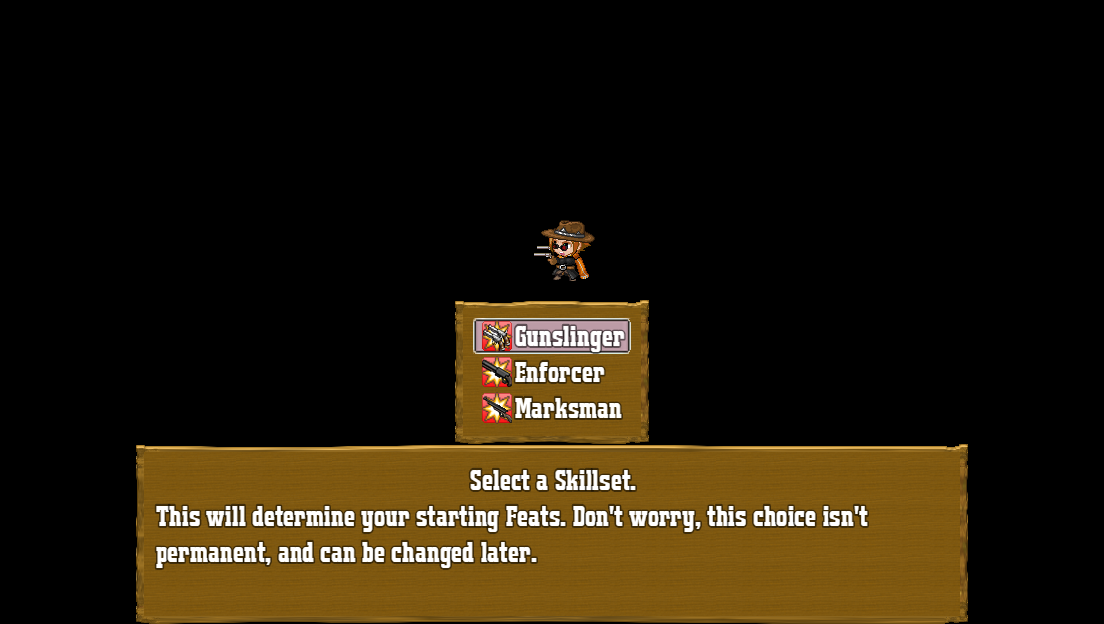
As you've read these descriptions, you've likely thought to yourself "that's totally me!" and that's good. You also may have felt like you aligned with a few different aspects of more than one type, and that's okay too. It's important to understand that people are complex, and that broad generalizations are likely to have at least a few outliers. What's important to understand is that any of these player types could pick up your game and start playing, so when making combat design decisions, ask yourself "what am I doing to keep them playing?" This is what I've done with Trailblazer. I watch every video of the game being played to see how the streamer approaches the game. I've see which style they gravitate towards, and I've continued to refine Trailblazer's combat experience to match.
Get Trailblazer
Trailblazer
The West Has Never Been More Wild!
| Status | In development |
| Author | mf_WillBlack |
| Genre | Role Playing, Adventure |
| Tags | Action RPG, diversity, JRPG, Pixel Art, RPG Maker, Steampunk, Wild West, Zombies |
| Languages | English |
| Accessibility | Configurable controls |
More posts
- I… Have Come BACK! … TO LIFE!Jun 17, 2024
- Trailblazer Voted #1 In Overall Fun!Jun 04, 2023
- Chapter 5 Progress and Feedback Quest 4May 08, 2023
- You Spoke and I ListenedJan 24, 2023
- Quick HotfixesOct 29, 2022
- NEW Demo, Open Beta Begins and Cameo Contest!Oct 25, 2022
- New Trailblazer Content Coming Soon!Oct 11, 2022
- Dutch Power Creations CameoAug 25, 2022
- A New Streamer Enters the Scene and other UpdatesAug 09, 2022
- RPG Maker Community, Be SafeJun 07, 2022

Comments
Log in with itch.io to leave a comment.
This is such valuable insight! Thanks for contributing your body, mind, and heart to making an awesome game while teaching people how to do the same.
I like especially how you provide a useful framework for understanding players, but also provide enough nuance so as not to force them into rigid categories. I'll definitely be thinking about this for future game dev.